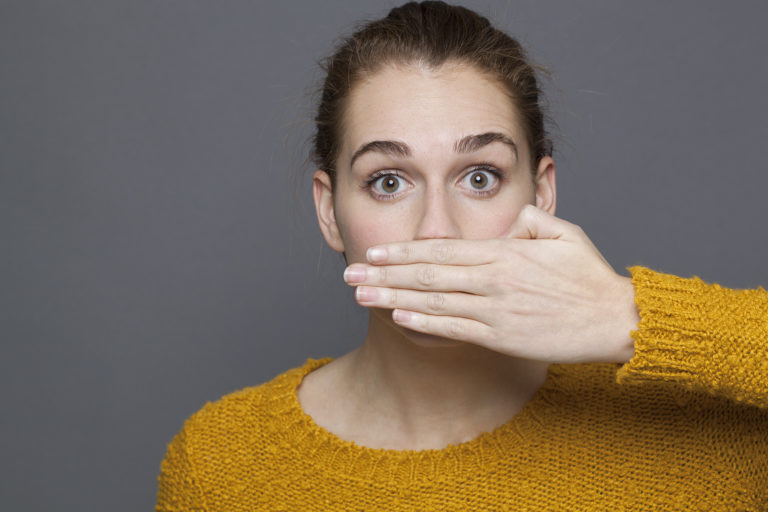Bad breath is a sensitive issue. And if you are reading this, you either are embarrassed by your own bad breath or someone close to you suffers from bad breath.
In most cases, the bacteria that reside in the mouth cause unpleasant odors. Bacteria in your mouth change food particles and dead cells in the mouth. It is part of the digestion process. However, if those extra food particles and cells don’t get properly removed from the mouth they smell (and not in a good way). They especially like to reside on back and top of your tongue.
Food. Foods that collect between teeth, around gums and on the tongue leave an odor. And foods like onion and garlic contain odor-causing compounds that end up in the bloodstream, are transferred to the lungs and are exhaled. For foods like these mints, mouthwash or gum only temporarily mask mouth odor.
Tobacco. Tobacco products cause bad breath, stain teeth and irritate tissues. Irritated tissues increase the risk of gum disease, which also traps bacteria and worsens bad breath.
Diet. Dieters can experience breath odor as the body breaks down its reserve of fat and protein for energy, releasing ketones in the breath. In this case, this is a small short term price to pay for a healthier body overall!
Dry Mouth. Dry mouth is a condition that can cause bad breath. Under normal conditions, saliva cleanses the mouth and washes away those bacteria particles. But if saliva decreases, these particles and bacteria remain in the mouth. Dry mouth can be caused by medications, salivary gland problems and by those who breath out of their mouths consistently. Dry mouth also increases the risk for tooth decay and gum inflammation.
Disease. Although less frequent, chronic bad breath could be a warning sign of a medical disorder such as a gum disease, or other medical disorders such as respiratory infections, diabetes, liver or kidney ailments, reflux or some cancers.
If you, or someone you care about, is experiencing recurring or long term bad breath, it is best to consult your dentist. If necessary, your dentist may refer you to your physician.

